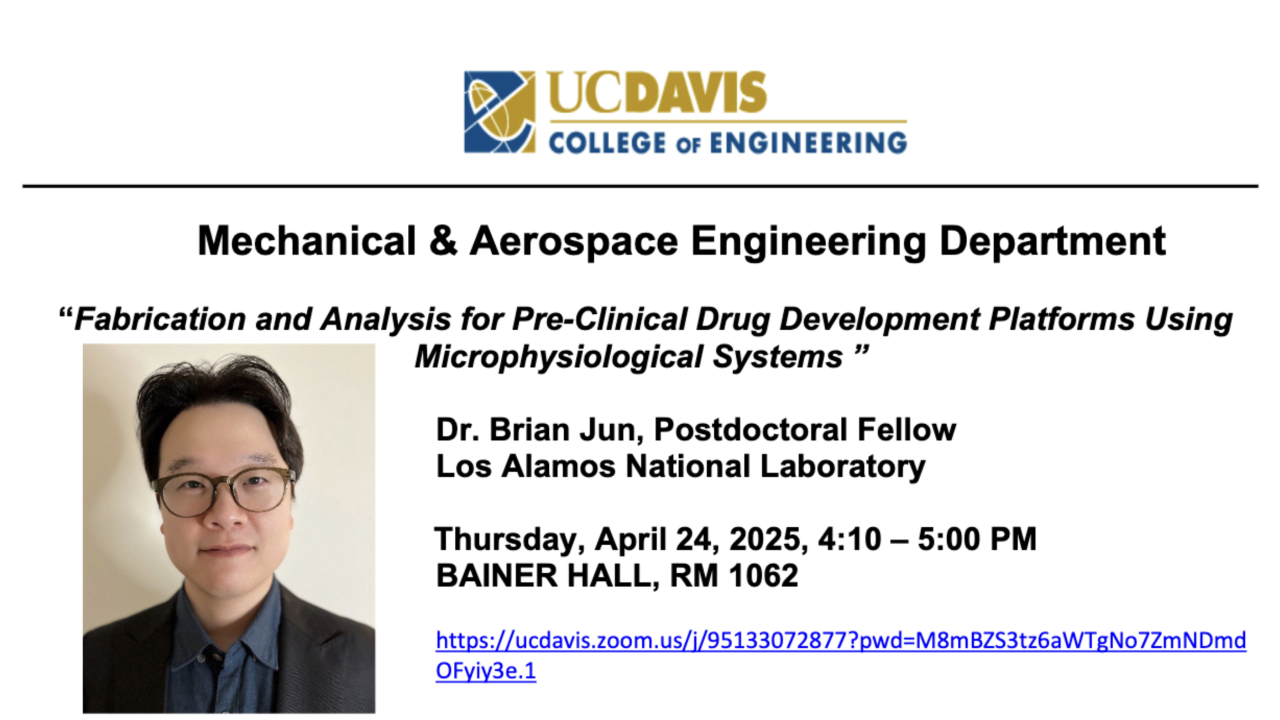
Event Date
In preclinical studies, which often involve over 10 years of laboratory and animal testing, only 0.1% receive approval for human trials. To improve this process, microphysiological systems (MPS), commonly known as organs-on-chips, have emerged as human-specific alternatives to traditional animal testing—a field central to my research. To date, I have developed and analyzed various MPS models, including tissues replicating human bone marrow, breast cancer, blood-brain barrier, and skin, as well as a full-scale in vitro model of prosthetic heart valves. Creating reliable MPS requires advancements in both device construction and software to accurately measure biological transport—such as flow, diffusion, and cell migration. In this talk, I will share my work on developing MPS and image-based velocimetry algorithms to measure biological flow and cellular dynamics, enhancing our understanding of vascular and tissue microenvironments. My future research will focus on developing high-throughput, reliable MPS through the integration of microfabrication, microfluidics, and biophysics. This will enable exploration of complex topics like cancer metastasis and vascular mechanobiology by creating more reliable and physiologically relevant in vitro systems.
Bio
Brian’s research focuses on the fabrication of in vitro platforms and biological transport measurements to better understand vascular and tissue microenvironments. Brian holds a BS and PhD in Mechanical Engineering from Purdue University, as well as an MS in Bioengineering from Georgia Tech. Currently, Brian is a Seaborg Postdoctoral Fellow in the Biochemistry & Biotechnology Group at Los Alamos National Laboratory.
